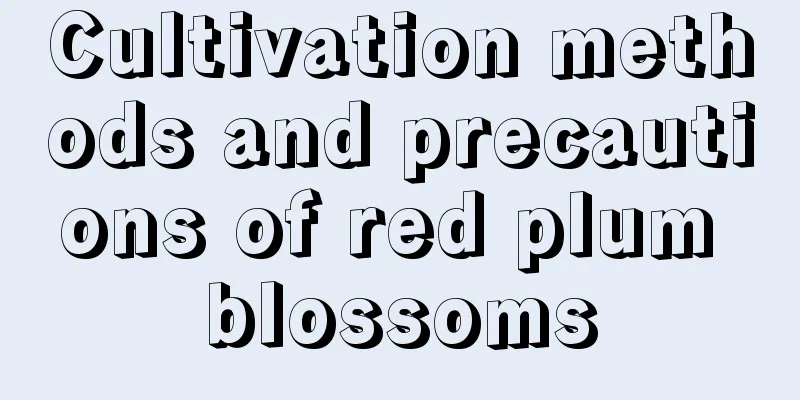Complete list of diseases and pests of Chlorophytum comosum and their control methods

Diseases of Chlorophytum comosum: Brown spot diseasesymptom:In the early stage of infection, several yellow-green spots will appear on the leaf surface, and brown or black spots will form as they gradually grow larger. Prevention and treatment methods:Spray Bordeaux mixture 1-2 times a month. The number of sprayings depends on the severity of the disease. If the disease is very serious, spray three times a month. In addition, severely infected leaves should be cut off and burned or buried deep to prevent more leaves from being infected. Chlorophytum disease 2: root rotsymptom:It only attacks the roots, causing them to turn black and rot, and slows down the growth rate. Severe attacks may cause the death of the entire plant. Prevention and treatment methods:Before dividing and planting, carefully check whether there are diseased roots. If there are, they must be cut off and burned in time before planting. When planting, sprinkle some sulfur powder in the planting hole. Common pests of Chlorophytum comosum: Cotton scale insectsPrevention and treatment methods:1. Spray with omethoate emulsion aqueous solution, 2. Apply lime sulfur to the lower part of branches in winter or early spring. Reasons why the leaves of Chlorophytum comosum turn yellow:1.Natural growth metabolism. 2. Direct sunlight or no light for a long time. 3. Too much water accumulation and poor air permeability. 4. Excessive or insufficient fertilization. Reasons why Chlorophytum comosum does not bloom:Watering too often and in too large an amount. Since the potassium fertilizer needed by plants is insoluble in water, while the nitrogen and phosphorus elements required for stem and leaf growth are soluble in water, the plants cannot bloom and bear fruit normally. Prevention and treatment methods:1. Control watering. 2. Appropriate lighting. Avoid exposure to sunlight and dark light. 3. Rough management. |
<<: How to grow the succulent plant Queen's Flower Hat
Recommend
The difference between Peach Egg and Peach Beauty
Different categories Peach egg is a succulent pla...
How to propagate Chlorophytum comosum by cuttings
Cutting method When taking cuttings of Chlorophyt...
Are roses shade-loving or sun-loving plants?
Do roses prefer shade or sun? Roses are sun-lovin...
A complete picture of wintersweet varieties. How to distinguish them?
1. Varieties 1. White Plum: Its petals are long o...
The efficacy and function of Magnolia grandiflora
The appreciation value of Magnolia grandiflora Ma...
How often should I water my jade tree?
How often should I water my jade tree? Jade plant...
How to grow the lucky tree and what to pay attention to, pictures of the lucky tree
1. Cultivation methods and precautions of the luc...
Is Guizhou suitable for growing litchi trees? Can they survive and bear fruit in Guizhou?
Can litchi trees be planted in Guizhou? Guizhou i...
What is the best fertilizer for fertilizing Aspidistra? Four fertilizer options
The growth rate of Aspidistra is relatively fast ...
Leek seed germination method
Before germinating, leeks should be rinsed with c...
How to propagate Cineraria by cuttings
1. Take the side buds This flower is usually prop...
What flowers are suitable for growing in Xinyang? What are the city flowers and trees?
1. Climate characteristics of Xinyang Xinyang is ...
Can succulents be propagated by leaves in summer (Methods of leaf cuttings of succulents in summer)
Can I grow succulents through leaf transplanting ...
Does elm like water? Is it a water-loving plant?
Do elm trees like water? Elm likes water. It is a...
You can grow a morning glory curtain in less than 3 months
Making and Appreciating Morning Glory Curtains (P...









